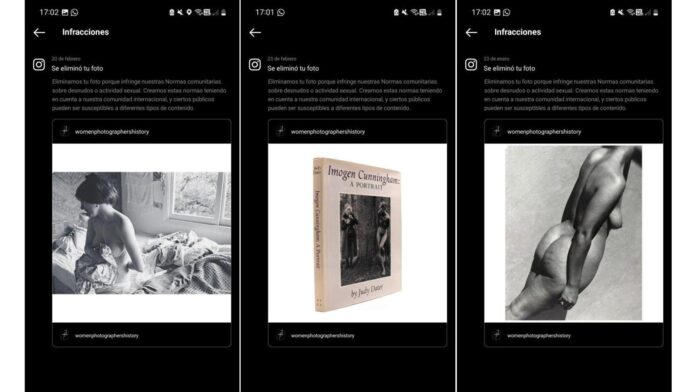The nipple has been freed on social media! Or so you would think if you glanced the headlines over the last couple months. This long-awaited and hard-won reversal seemed too good to be true—and unfortunately it was.
These premature proclamations came after Meta’s Oversight Board released their “Gender Identity and Nudity” decision in January, which rightly took Meta to task for their notorious “female nipple” guideline and resulting gender discrimination.
The board’s call for Meta to abide by human rights standards, and to “avoid discrimination on the basis of sex or gender identity” distilled the “free the nipple” argument—where female nipples are censored on social media but male nipples are not—to its most basic and pertinent point: equality.
Equality has long been the mission of the “free the nipple” movement, slipping in and out of headlines for years. As such, the premature announcement by countless outlets that the nipple had now been freed on the most popular social media platform was not just overly excited, but was possibly damaging to the movement.
Meta’s Oversight Board chooses a few cases each quarter to review, for which they can demand Meta repost images that it has removed. Along with these decisions, the board gives more nuanced “recommendations” for how the platform could avoid situations that bring cases in the first place. While Meta is obligated to abide by the board’s content moderation decisions, it is not obligated to consider the recommendations at all, let alone enact them. The three recommendations that the board made in the “Gender Identity and Nudity” case circled around clarifying language and revisiting fuzzy guidelines about nudity and gender.
Sixty days after the decision, Meta has responded with the vague commitment to “Implement in Part” each of the recommendations. According to Carolina Are, Innovation Fellow at the UK’s Centre For Digital Citizens, Meta’s response shows “that they are trying to change things” but implementation will be tough, as “they still view nudity as challenging to moderate and as harmful. They still want to protect themselves.”
The “female nipple” is still quite a pointed issue as platforms are contending with rising conservatism and the imposing of internet regulations like the US’s FOSTA-SESTA, and the UK’s Online Safety Bill that have sparked concerns over restrictions of free expression across the internet. Payment platforms, websites and social media companies have all felt the pressure to target imagery deemed sexually illicit or otherwise face litigation, which has resulted in censorship and a loss of income for artists and creators. While Meta could be finally convinced that nipple censorship is discriminatory, they are in a tough situation now to implement much of a change.
Meta’s response is vague, but serves to finally acknowledge that something is amiss with their guidelines. The fight to free the nipple has become all the more symbolic in a world where bodies are policed and access to gender-affirming care is precarious. By claiming a win now, we risk prematurely burying a cause that is very much alive, in headlines and in history.

























